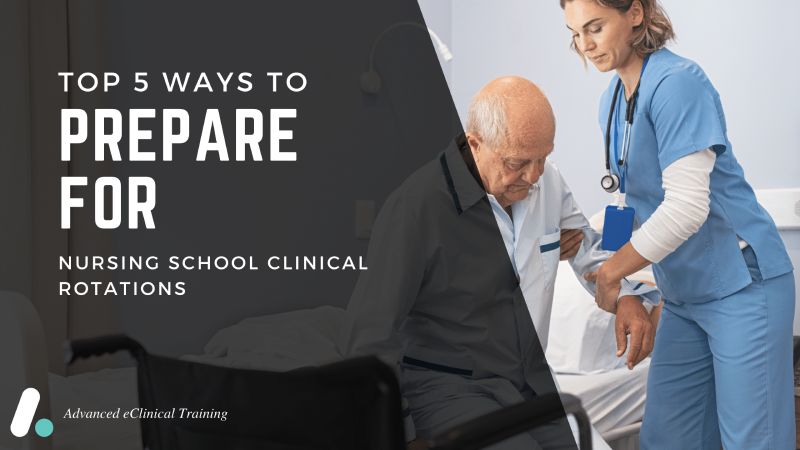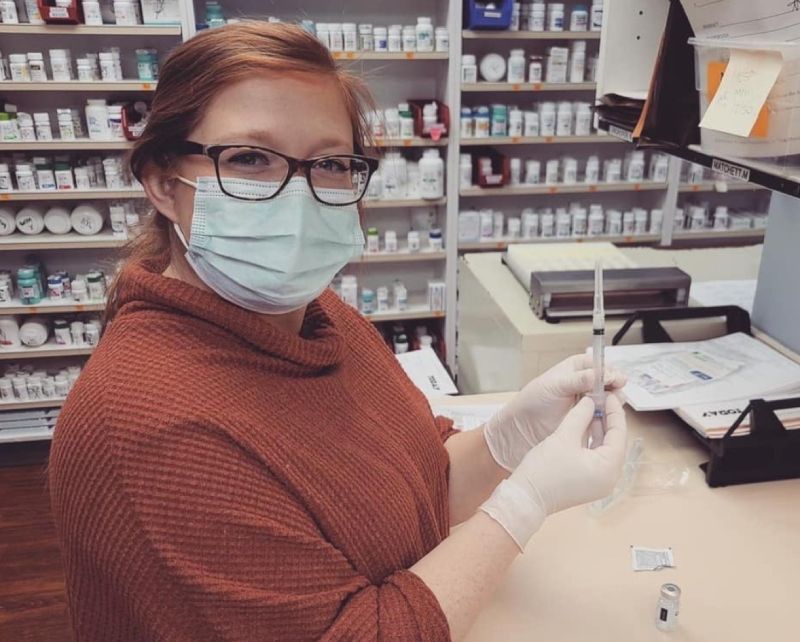The Ultimate Guide to Research for Medical School: Hours, Types & Tips
Gaining research experience is an important part of a pre-med student’s journey, offering unique opportunities to develop skills and insights that are essential for success in medical school and later as physicians. Whether it’s conducting experiments in a lab, analyzing patient data, or exploring the societal impacts of healthcare policies, research allows students to engage with the medical field in a hands-on and meaningful way.
For aspiring medical professionals, research isn’t just about adding another line to a resume — it’s about learning to ask critical questions, solve problems, and contribute to advancements that can improve patient care. In this post, we’ll explore why research is such a vital experience for pre-med students, the types of opportunities available, and how to make the most of them on your path to medical school.
Why Research Experience Is Crucial Before Medical School
Gaining research experience is invaluable for aspiring medical students, since it offers an opportunity to develop skills and insights that they can draw from in their future careers. Taking part in research opportunities helps pre-med students to:
- Improve their ability to read and write research papers: Participating in research projects inherently hones students’ ability to interpret and contribute to scientific literature.
- Develop critical thinking skills: Research requires students to think deeply about problems, analyze data, and form evidence-based conclusions — skills that are essential when diagnosing patients or assessing treatment options.
- Practice problem-solving: Through research, students face practical challenges and learn to devise creative solutions, such as troubleshooting problems with experiments or interpreting unexpected results.
- Build communication skills: Effectively communicating your findings to others — whether through presentations, papers, or discussions — is as important as conducting the study itself. Developing these skills early prepares students to communicate with patients, colleagues, and academic audiences in their future careers.
- Stay current with the latest medical innovations: Working on research projects provides exposure to the forefront of medical science, and this early immersion into medical advancements gives students a competitive edge when beginning their training.
- Learn how to work as part of a team: Research involves collaboration with supervisors, peers, and other stakeholders in multidisciplinary teams, developing teamwork and interpersonal skills while offering a glimpse into the collaborative nature of medical environments.
- Kickstart their education: Getting involved in research early strengthens medical school applications while providing a deeper understanding of the scientific principles encountered in medical school and beyond.
How Many Research Hours Do I Need For Medical School?
When it comes to research hours, there’s no formal requirement for medical school admissions. However, many successful applicants invest time into research opportunities to strengthen their applications and demonstrate their interest in and commitment to the medical field.
Some students accumulate hundreds — or even thousands — of research hours throughout their undergraduate years. This allows them to highlight key achievements, such as published papers, conference presentations, or major contributions to their research teams on their resumes. That said, while the quantity of hours is impressive, the quality of the experience matters most. Admissions committees are particularly interested in how applicants’ research experience shaped their skills and knowledge.
Ultimately, the number of research hours needed depends on your goals and the programs you plan to apply to. If research-intensive or dual-degree (MD/PhD) programs are the aim, more hours and tangible accomplishments may be necessary to stand out. For other programs, a well-rounded application with moderate research experience can still make a strong impression.
Research Opportunities for Pre-Med Students
Pre-med students have a wealth of research opportunities to explore, ranging from basic science to emerging fields like artificial intelligence. Choosing the right type of research can help align interests with career goals while building valuable skills for medical school.
Research Opportunity Types
- Basic Science Research: Involves working in labs focused on biology, chemistry, or genetics, on projects that include experiments, data analysis, and the lab techniques fundamental to understanding medical advancements
- Clinical Research: Includes studies that explore the effectiveness of treatments or other medical interventions on patients
- Public Health Policy Research: Studies the intersection of healthcare and policy through topics such as healthcare accessibility, insurance systems, or legislative impacts on public health
- Narrative Medicine Research: Focuses on the human side of medicine by analyzing patient narratives to understand the patient experience
- Artificial Intelligence (AI) Research: Explores how AI transforms diagnostics, treatment planning, and healthcare delivery
In-Person vs. Online Opportunities
Though different formats, both in-person and virtual research opportunities offer the same experiences. Having both options provides greater flexibility to fit your schedule and interests.
- In-person opportunities often take the form of working in a university lab, assisting with clinical trials or observational studies, and shadowing physicians or researchers to form a better understanding of how research principles integrate into clinical practice.
- Online opportunities include enrolling in courses to learn research fundamentals or finding virtual internships where students work remotely on tasks such as data analysis and literature review.
How to Make the Most of Research Opportunities
Taking part in research as a pre-med student is always a good idea, but maximizing the benefits of this decision requires strategic planning. Here’s how to take full advantage of any research opportunity:
Set Clear Goals
Before getting involved, think about what you hope to achieve from the experience. Are you looking to gain specific technical skills? Explore a particular field of medicine? Or contribute to a publication? Setting clear objectives from the start goes a long way toward maintaining focus and ensuring the experience aligns with long-term goals.
Build Relationships & Network With Colleagues
Take the time to build positive relationships with everyone on the research team, including your principal investigator (PI), lab members, and supervisors. Ask thoughtful questions, seek feedback, and express your interest in learning more. Once established, these relationships can result in letters of recommendation and connections to other opportunities down the road.
Learn Skills Early
Familiarize yourself with essential research skills like data analysis, literature review, and lab practices. Mastering these early will help you contribute more effectively and enable you to take on more advanced tasks sooner.
Take Initiative
Be proactive in your role on the research team by volunteering for additional tasks or suggesting ways to improve processes. Taking ownership of your workload and seeking opportunities to contribute beyond what’s expected shows supervisors that you’re capable of handling increased responsibilities. You can also show initiative by pursuing certification. Getting certified as a clinical research assistant demonstrates to team leads that you’re well-versed in areas such as clinical research conduct, principles of good clinical practice, drug development, and regulatory compliance.
Keep Track of Your Involvement
Make a record of the projects you work on, your specific contributions, and any noteworthy results or outcomes. Keeping thorough notes will not only help you reflect on your experience but also make it easier to showcase your work in medical school applications or during admissions interviews.
Seek Presentation & Publication Opportunities
Whenever possible, present your findings at conferences and take advantage of opportunities to publish your research. These accomplishments demonstrate your ability to contribute to the scientific community and are a great way to make your med school applications stand out.
5 Tips for Showcasing Research in Medical School Applications
Research experience is a valuable asset in the medical school application process. Following the tips below can effectively highlight your contributions and make a strong impression on admissions committees.
1. Use Your Personal Statement to Highlight Research Experiences
The personal statement section of your application is a great place to speak to your research experience. Discuss why you chose to get involved, the impact of your work, and how it shaped your understanding of medicine. To really make it shine, focus on how what you learned connects to your passion for healthcare and goals as a future physician.
2. Include Your Experience on Your Resume
Emphasize measurable outcomes whenever possible to enable admissions committees to see the scope and significance of your work. Be sure to highlight accomplishments such as:
- Presentations you gave
- Published papers or academic articles
- Specific contributions you made to projects
3. Mention Conferences or Events
If you’ve attended or spoke at conferences, be sure to mention them in your application. Participation in professional events shows your initiative, networking ability, and commitment to furthering the medical field.
4. Tie Research Into Your Interview Responses
During medical school admissions interviews, it’s advantageous to speak about your research experience. Be prepared to elaborate on your role in projects, the challenges you faced and how you overcame them, and how your work relates to your career goals.
5. Create a Research Portfolio
Include items such as abstracts, publications, presentations, and descriptions of your projects. A well-organized portfolio can serve as an excellent reference during interviews and demonstrates your professionalism and dedication to your work.
FAQs
How many research hours do I need for medical school?
There is no formal hours requirement for medical school admissions.
What’s the average number of research hours for med school applicants?
Some students accumulate hundreds — or even thousands — of research hours throughout their undergraduate years.
What counts as research hours for med school?
Any type of research opportunity related to healthcare or medicine qualifies.
What are the best research opportunities for pre-med students?
Examples of research opportunities for pre-med students include basic scientific research, clinical research, public health policy research, narrative medicine research, and AI research.
Why is research important for medical school?
Taking part in research opportunities can help your application stand out and make you a more competitive candidate.
Research experiences are more than just a way to strengthen your medical school application — they present an opportunity to grow as a thinker, collaborator, and innovator in the healthcare field. By immersing yourself in research, showcasing your contributions effectively, and connecting your experiences to your future goals, you’ll lay the groundwork for a fulfilling medical career.
Another way to prepare for med school? Enrolling in a medical training program. At Advanced eClinical Training, our 100% online pre-med certification courses are designed to equip you with the skills and knowledge needed to succeed in medical school and beyond. Plus, upon completion — in as little as 8 weeks — you’ll earn a nationally-recognized certification that qualifies you for the entry-level healthcare roles that count toward clinical experience hours.
Ready to jumpstart your healthcare career? Enroll today.


